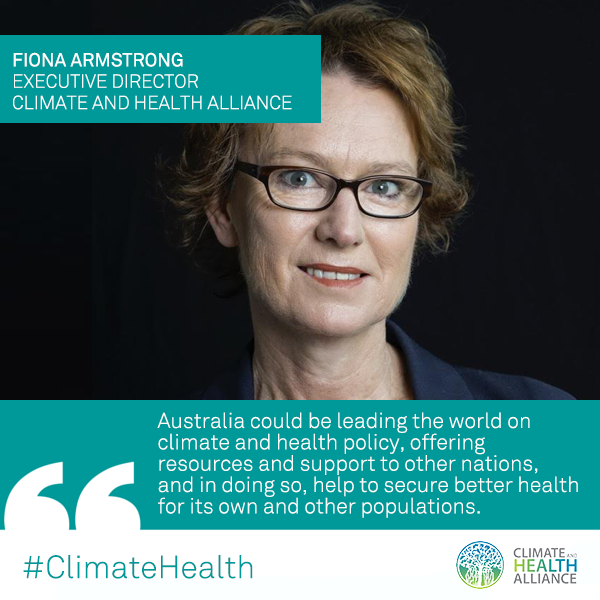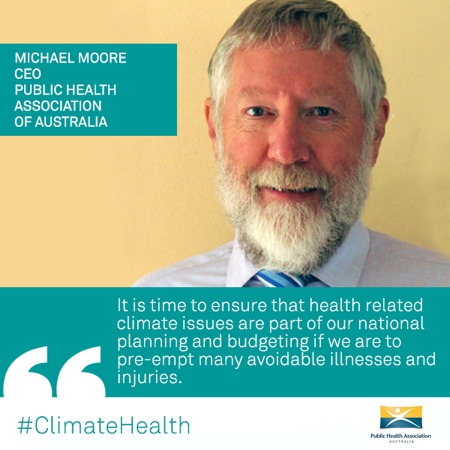Global | New Report Reveals Deficiencies in Governments' Plans to Address Health Risks of Climate Change
A new report released today by the World Federation of Public Health Associations (WFPHA) reveals the need for national governments around the world to strengthen their policy planning efforts to address the health risks of climate change.
The report highlights findings from the WFPHA’s Climate Change and Health Policy Assessment Project, a world-first global benchmarking survey on climate and health policy. The project was led by the Climate and Health Alliance (CAHA) along with Health Care Without Harm (HCWH), Public Health Association of Australia (PHAA), World Medical Association (WMA), and WFPHA Environment Work Group, with support from climate and health policy experts and researchers from University of Notre Dame, Australia, and University of New South Wales.
The survey uncovered a lack of climate-health preparedness, with more than half of the 35 respondent countries having no national plan that adequately addresses the health impacts of climate change. A large majority of respondent countries has made little or no progress in identifying the health risks of climate change projections for their citizens, identifying vulnerable populations and infrastructure impacting on health, and developing public health adaptation responses. Further, more than 40% of respondent countries have not involved the health sector in mitigation planning nor invested in research on the health effects of climate change.
Dr. Peter Orris, Co-Chair of WFPHA’s Environmental Health Working Group and HCWH Senior Advisor, said: “This survey reveals we are failing, as a global community, to tap into the benefits that climate action will bring for nations, for communities, and for individual health and well-being.”
“These survey findings suggest an urgent need for the health sector to deepen our involvement in addressing climate change, and for national and international institutions to rapidly ramp up support for health protection and promotion in the face of climate risks,” said Jennifer Wang, a member of the project team and coordinator of HCWH’s Healthy Energy Initiative.
In light of these findings, the report’s recommendations include:
- The development of national Climate Change Action Plans that recognize and respond to climate change health risks as a mandatory element of international climate agreements;
- All nations develop national climate and health strategies as a core element of their national Climate Change Action Plans;
- For all national Climate Change Action Plans to include strategies for mitigation, with a particular emphasis on transitioning away from fossil fuels;
- For health and medical professional associations to make it a priority to raise awareness of the multiple public health risks from climate change and opportunities for improved health from climate action;
- For a collaborative information sharing platform and decision support tools be established to enable nations to access knowledge and share experience from leading countries on climate and health responses.
Read the WFPHA media release here.
Download the report and other associated materials below:
- Read the full report – Climate Change and Health Policy Assessment Project Report: A Global Survey 2015
- Download the WFPHA Global Survey Matrix Infographic
The report in the media:
- Interview to Fiona Armstrong (Executive Director, Climate and Health Alliance, HCWH's Strategic Partner in Australia), ABC News Radio (Australia)
- Governments unprepared for the health impacts of climate change: global survey, Blue and Green Tomorrow (Australia)
- Lagging on Climate Change Action Affects Health: PHAA, AJP (Australia)




